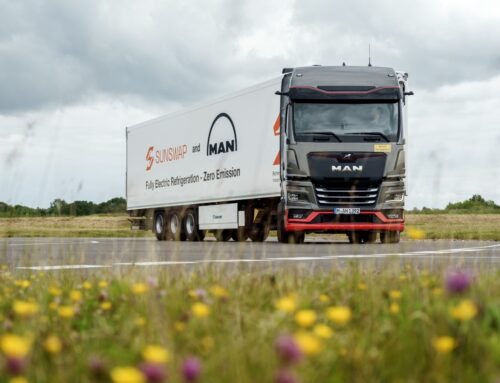RHA: lorry operating costs up nearly 20 per cent
 The Road Haulage Association has warned that the cost of operating a 44-tonne artic and trailer has increased by 19 per cent, as evidenced by findings from its annual Haulage Cost Movement report released yesterday.
The Road Haulage Association has warned that the cost of operating a 44-tonne artic and trailer has increased by 19 per cent, as evidenced by findings from its annual Haulage Cost Movement report released yesterday.
It said that the steep increase in food costs currently contributing to the cost of living crisis could be partially attributed to the significant increase in diesel prices (up by 39.2 per cent) as well as the diesel exhaust fluid, AdBlue (up by 86 per cent) which are exerting continued pressure on the transport sector; though even when fuel is excluded, the association’s survey shows an 11.6 per cent increase in costs.
The RHA added that it would continue to press the Chancellor of the Exchequer to reduce the tax burden on operators with a 15p per litre ‘essential user rebate’.
While acknowledging the 5p per litre cut in fuel duty in March 2022, the association said it did not expect this to remain through 2023 given its status as a “one-year deal”. In addition, it said, the change of rules around red diesel in April had come “at the worst possible time for operators” such as those in the refrigerated transport and waste management sectors.
The RHA also highlighted the rise in vehicle costs, beyond inflation, citing product delays and long waiting lists. In addition, energy price increases were piling on additional pressure, it warned; and it urged the government to extend support for the road transport sector in order to ease supply chain pressure, following the termination of the current energy bill relief scheme in March. A review is currently underway to determine the sectors that will be eligible for support after this date.
Last month, the RHA surveyed members on the impact of energy cost rises. It reports that almost half of those who responded said their bills had increased by between 300 and 400 per cent, with the remainder reporting 130 per cent average rises.
The bulk of these costs come from storage and warehousing facilities, it said, where efficiencies had “already been fully exploited”.
While hauliers have increased their prices by an average of 5-10 per cent over the last year, the vast majority have been unable to pass on the energy price rises in full, the association said.
In addition to outlining the impact on hauliers, RHA warned of the particular vulnerability of the coach industry.
“The majority of coach operators are small businesses, many of whom deliver essential school transport and rail replacement services,” it warned.
“They operate on low margins with many tied into contracts with local authorities which do not reflect the increases in fuel and energy costs we have seen in the past year.”










